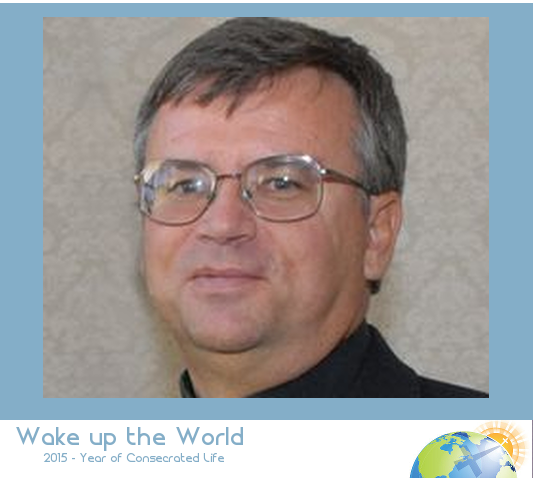 With this reflection, Forgetting Who You Are – Pat Griffin CM continues his series “Considering Consecrated Life”
With this reflection, Forgetting Who You Are – Pat Griffin CM continues his series “Considering Consecrated Life”
Recently, a friend of mine said something which stuck in my mind. The guidance was not original or profoundly stated, but I heard its wisdom and warning right away. He said:
“You cannot forget who you are, even for a second.”
I will not try to recapture the circumstances which gave rise to that kind of statement, but I think that you can imagine some for yourselves. As usual for me, I tried to envision biblical situations which give example and support for this kind of caution.
I thought of the story of Peter in the Garden of Gethsemane. With the other disciples, he runs away when Jesus falls under the control of the guard. As we know, he then finds occasion to reject Jesus three times: “I do not know the man.” We usually characterize this as Peter denying Jesus, but we could also speak of how Peter denies himself. He forgets who he is as a friend, follower, and fellow countryman of Jesus. With this lapse, he moves away from a love which had defined him for the past few years. And once this shift starts, it takes on a life of its own. One rejection follows another.
The story of Jonah also came to mind. He forgot his call as a prophet of the Lord and so he strives to flee from the mission which the Lord holds out for him. As a result, he winds up in the belly of a whale. Then, later, when the Lord acts with mercy towards a foreign people, Jonah grows angry with the Lord and prays to die. Jonah has lost sight of his role. As a prophet, his duty lies in speaking as the Lord commands and in accepting the Lord’s direction in his actions. When Jonah pays no heed to who he is, he places himself in opposition to the Lord.
Finally, I pushed my reflections all the way back to the beginning and the story of Adam and Eve. As the beloved creatures of God, they held a privileged place in the divine order. They were friends with God and were blessed with the opportunity to walk with their Maker in the garden. God gave them everything they needed and set only one limitation on their choices. Yet, they forget their place and the goodness of God. God’s vision had defined their gifts and limits, but they chose to be other than how they were made. In this choice, they turn away from their Creator and their proper selves. They disregard who and whose they are.
When we look to the Bible for instruction, no surprise emerges when we find that the Lord God dominates in the response. In each case above, the forgetting of the genuine self involves a rejection of the Holy One; the turning away from the Most High leads to a denial of a person’s core. Psalm 139 beautifully captures the truth:
You formed my inmost being;
you knit me in my mother’s womb.
I praise you, because I am wonderfully made;
wonderful are your works!
My very self you know.
(Ps 139:13-14)
Yes, God made us in a particular manner and when we live according to that fashioning, we are faithful to our deepest, truest self. We can freely choose to do that, but we can also choose a different path which compromises our best selves and, ultimately, makes us unhappy.
This proves true when I consider myself as a Christian, a consecrated person, and a Vincentian. Each of these descriptions says something important about me and about who I need to be. When I discount one or other—usually a combination or all three—I move away not just from who I am but from who I want to be. People who see me in these situations get the wrong idea about what it means to be Pat Griffin and for what he stands. I have forgotten myself, and consequently I give a bad witness to my values.
The validity of this result extends beyond considerations of myself as an individual. It also touches me as a member of a community. (Or, as part of an institution.) As Vincentians, we must be especially sensitive to the needs of the poor. We live out this awareness in the manner by which we follow Christ the Evangelizer. A hope also springs up that we shall cooperate and collaborate with others who hear the same call. When we are not true to being a collaborative member of a Family, we give poor witness to our Catholic and Vincentian charism. We forget ourselves. Sometimes we need another to remind us by their fidelity or their need. We hear once again the summons to turn the coin to one side in order to see the poor in the midst of our worship or to turn it the other way so as to see the Lord in the midst of our service.
We should remember who we are. It is our stimulus for living as Vincentians.







I work as a pastoral care worker at the Daughters of Chairty and I always enjoy reading famvin
Sr. Gwen TamlynDC
Gwen, So good to hear from you again! Your series of reflections for the SVDP in Australia are still available in various places on FamVin.